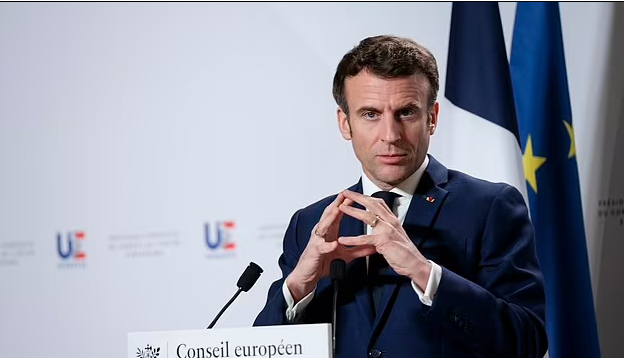PARIS, France — President Emmanuel Macron announced on Thursday, July 24, 2025, that France will formally recognise the state of Palestine at the United Nations General Assembly in September, marking a major diplomatic shift and adding to mounting international pressure on Israel over the war in Gaza.
“The urgent thing today is that the war in Gaza stops and the civilian population is saved,” Macron wrote in a post on social media platform X.
“Given its historic commitment to a just and sustainable peace in the Middle East, I have decided that France will recognise the state of Palestine. Peace is possible.”
France, home to both the largest Jewish and largest Muslim populations in Western Europe, becomes the most influential Western country to commit to Palestinian statehood—a mostly symbolic but politically charged move that could spur similar action across the continent.
More than 140 countries already recognise a Palestinian state, including over a dozen European nations.
The decision was met with sharp criticism from Israel.
Prime Minister Benjamin Netanyahu condemned the move, saying it would reward terrorism in the aftermath of Hamas’ 7 October 2023 attacks.
“We strongly condemn President Macron’s decision,” Netanyahu said in a statement.
“Such a move rewards terror and risks creating another Iranian proxy, just as Gaza became. A Palestinian state in these conditions would be a launch pad to annihilate Israel — not to live in peace beside it.”
The Palestinian Authority welcomed the announcement, with Palestinian Liberation Organisation (PLO) Vice President Hussein Al Sheikh thanking Macron on X.
“This position reflects France’s commitment to international law and its support for the Palestinian people’s rights to self-determination,” he wrote.
A formal letter declaring the recognition was presented to Palestinian President Mahmoud Abbas in Jerusalem on Thursday, July 24, 2025.
The United States swiftly rejected France’s plan.
Secretary of State Marco Rubio criticised the move, calling it “reckless” and harmful to the peace process.
“This reckless decision only serves Hamas propaganda and sets back peace. It is a slap in the face to the victims of October 7th,” Rubio said on X.
The U.S. had earlier this week pulled out of ceasefire talks in Qatar, accusing Hamas of negotiating in bad faith.
Macron’s announcement comes amid escalating frustration over Israel’s conduct in Gaza, where humanitarian agencies report a severe food crisis and widespread civilian suffering.
Earlier this week, France joined over two dozen countries in condemning Israeli restrictions on aid deliveries and the deaths of hundreds of Palestinians trying to reach food.
The French president, who initially expressed strong support for Israel in the wake of Hamas’ attacks, has become increasingly vocal in criticising the war’s conduct and its humanitarian fallout.
France and Saudi Arabia are due to co-host a high-level conference at the UN next week on a two-state solution. Macron has consistently argued that Palestinian statehood should occur in tandem with recognition of Israel and its right to security.
British Prime Minister Keir Starmer, who is expected to join Macron and German Chancellor Annalena Baerbock for emergency talks on Gaza, echoed the French leader’s position.
“We are clear that statehood is the inalienable right of the Palestinian people,” Starmer said.
“A ceasefire will put us on a path to the recognition of a Palestinian state and a two-state solution which guarantees peace and security for Palestinians and Israelis.”
The announcement adds to a growing chorus of voices calling for a renewed commitment to a two-state solution, which envisions a Palestinian state alongside Israel in Gaza, the West Bank, and East Jerusalem—territories Israel has occupied since the 1967 Middle East war.
While Israel annexed East Jerusalem shortly after the war and has established settlements in the West Bank housing more than 500,000 Israeli citizens, the majority of the international community continues to view the two-state model as the most viable route to long-term peace.
Formal recognition by France is expected to galvanise debate within the European Union and signal a turning point in international diplomacy over the protracted Israeli-Palestinian conflict.







